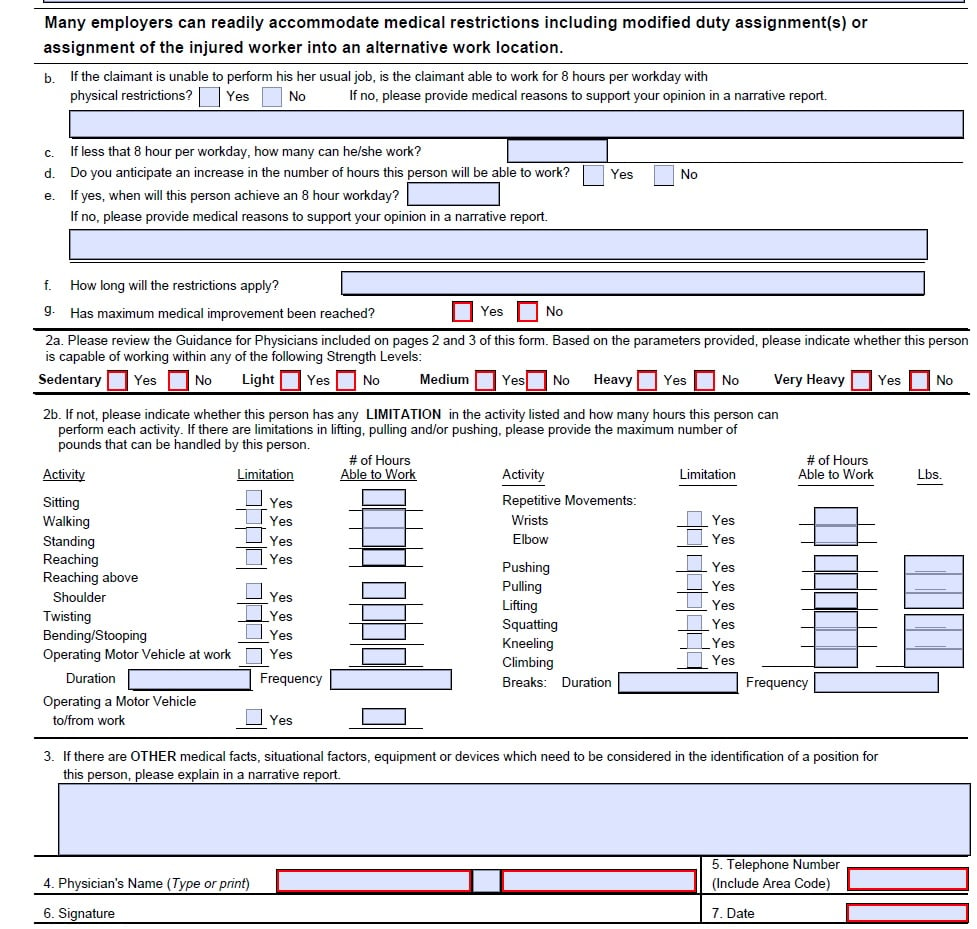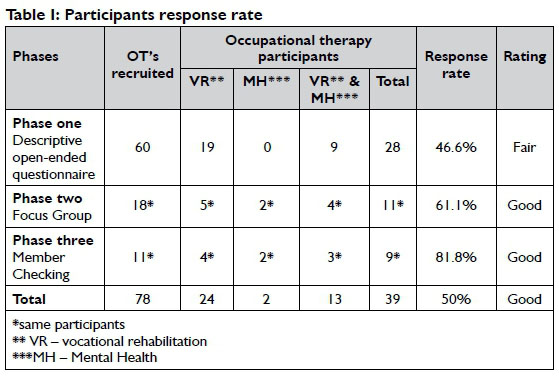What is a Functional Capacity Evaluation?
A Functional Capacity Evaluation (FCE) is a comprehensive set of tests, practices, and observations that are combined to determine the ability of the evaluated individual to function in various circumstances, most often occupational. It is used to measure an individual’s physical strength, endurance, flexibility, and motor skills, and can also assess a person’s ability to perform activities of daily living. After suffering on the job injuries, workers may be obligated to undergo Functional Capacity Evaluation before returning to work. The stated purpose of the FCE is to ensure that a worker can return to his job of injury in good physical health, and safely perform his duties. The FCE can also be used to determine what type of work an employee is capable of returning to should he not be capable of returning to his job of injury.
You may be wondering, “What is a functional capacity evaluation and how does it effect my work status”? A functional capacity evaluation (FCE) is a set of tests used to identify a person’s physical skills, functional capability, activity endurance, and work tolerances.
Jump to a Section:
Toggle
Jump to a Section
- What is the FCE Process?
- Who performs the FCE?
- How is FCE used to return an injured worker to work?
- FCE FAQ
- Contact us
What is the Functional Capacity Evaluation (FCE) Process?
The American Physical Therapy Association defines a FCE as a “comprehensive battery of performance-based tests that is used commonly to determine ability for work, activities of daily living, or leisure activities.” The tests are designed to simulate the physical aspects of an 8 hour work day and typically take one to two days to complete in blocks of several hours. Tasks such as balancing, carrying, stooping, and climbing are administered, and the worker is subsequently evaluated. The physical intensity of the employee’s pre-injury position is also taken into account; the FCE has several job categories, ranging from “sedentary” to “very heavy.” If a worker’s performance in “lifting,” for example, is lacking, this will be less detrimental to a worker whose job is categorized as “sedentary.”
Reasons for falling short of the FCE’s standards can be legitimate, but they could also result from inadequacies on the part of the test administrator, problems with the evaluation itself, a worker’s misunderstanding of test instructions, or other elements. Alternatively, if a worker has reached his Maximum Medical Improvement (MMI), and still doesn’t function at the physical level necessary for the job, the FCE can determine that the employee can go back to work in a position that accommodates the employee’s restrictions.
The most important thing an injured worker should remember regarding an FCE is to give the evaluation your best effort, don’t take pain medication before or during the test unless your physician instructs you to, tell the truth, and be open and honest.
The FCE process often involves the following:
1. Interview and History Taking: This is where the evaluator gathers information about the person’s medical history, current complaints, job demands, and goals for the evaluation.
2. Physical Examination: This may involve an assessment of the person’s posture, balance, flexibility, strength, and movement patterns.
3. Functional Testing: This involves the use of various physical and cognitive tasks to assess the person’s functional abilities. These tasks may simulate workplace or day-to-day activities.
4. Pain Assessment: The evaluator may ask the person to rate their pain levels during different activities to help determine their pain tolerance.
5. Report Writing: The evaluator writes a report detailing the person’s functional abilities, restrictions, and limitations. The report may include recommendations for work accommodations or treatments.
FCEs are often used for determining fitness to work after an injury or illness, for developing rehabilitation or treatment plans, or for disability evaluations. The evaluation is usually conducted by a physical therapist near you or an occupational therapist and may be performed in a variety of settings including rehabilitation facilities, offices, or even the individual’s actual work site.
Who performs the Functional Capacity Evaluation?
A trained medical professional, such as an occupational therapist or a physician specializing in rehabilitative occupational medicine, will perform the functional capacity evaluation.
An FCE cannot be administered without the employee’s consent. If a worker refuses to participate in the evaluation and doesn’t meet the criteria for his job category, he may be restricted in his return to the workforce.
How is a Functional Capacity Evaluation Used to Return an Injured Worker to Work?
In a New Orleans work injury case, a Functional Capacity Evaluation (FCE) plays a crucial role in a number of ways:
1. Determining Return-to-Work Capability: An FCE can help to determine when and if an injured worker is ready to return to work, either to their original job or to a modified or alternative role. It measures an individual’s physical and functional abilities and compares these to the physical demands of their job.
2. Establishing Permanent Impairment or Disability: In cases where a work-related injury leads to lasting physical impairment or disability, an FCE provides objective data that can be used to assess the level of permanent impairment, which can be crucial for determining disability benefits or settlements.
You may be wondering, “What are FCE permanent restrictions and how does it affect worker’s compensation?” The FCE test is done to determine permanent restrictions. The evaluation will determine if a person can go back to work normally or only light-duty work. Permanent restrictions will be determined based on the physical abilities after a person reaches MMI.
3. Workplace Accommodations: An FCE can help to identify necessary workplace accommodations or modifications to help an injured worker return to work safely and effectively. These accommodations might involve changes to work hours, tasks, equipment, or the work environment.
4. Rehabilitation Planning: FCE results can guide the creation of a rehabilitation or physical therapy plan by identifying the injured worker’s physical limitations and capabilities.
5. Preventing Future Injuries: By understanding an employee’s functional capacity, employers can also better align job demands with a worker’s abilities, potentially preventing future injuries.
The results of an FCE are typically summarized in a report, which should include the worker’s functional abilities, limitations, and restrictions. The report may also suggest potential modifications to work duties or recommend further medical treatment or rehabilitation. It is important to remember that an FCE should be only one part of a comprehensive approach to managing work-related injuries, and should be used in conjunction with medical evaluations and diagnoses.

Functional Capacity Evaluation FAQ
Do I need to bring anything with me?
Be sure to bring your medications and any assistive devices that you may need (e.g., eyeglasses, brace, cane, etc.). If you have a workers compensation attorney, they should provide your medical records and information about your occupational background, such as a job description, directly to the evaluator.
Will the evaluator know anything about me?
If you have an attorney, the evaluator should already be aware of your background and occupation, work background, diagnosis, treatment, and date of disability. This information will help the evaluator prepare a more detailed and informed report.
Will the evaluator ask me questions about my disability?
Yes. The evaluator will likely ask questions to get a better sense of your diagnosis, symptoms, and complaints. The more information that the evaluator has, the more comprehensive the functional capacity evaluation report will be.
Can I take breaks?
You will be allowed to break for meals and to use the restroom. If you require additional breaks, simply tell the instructor.
Contact an Experienced Louisiana Disability Lawyer Near You

If you are injured at work or under the Longshore & Harbor Workers Compensation Act, call me at 866-289-2802 or submit your inquiry online. Please be advised that you may be facing important legal deadlines so don’t delay.

